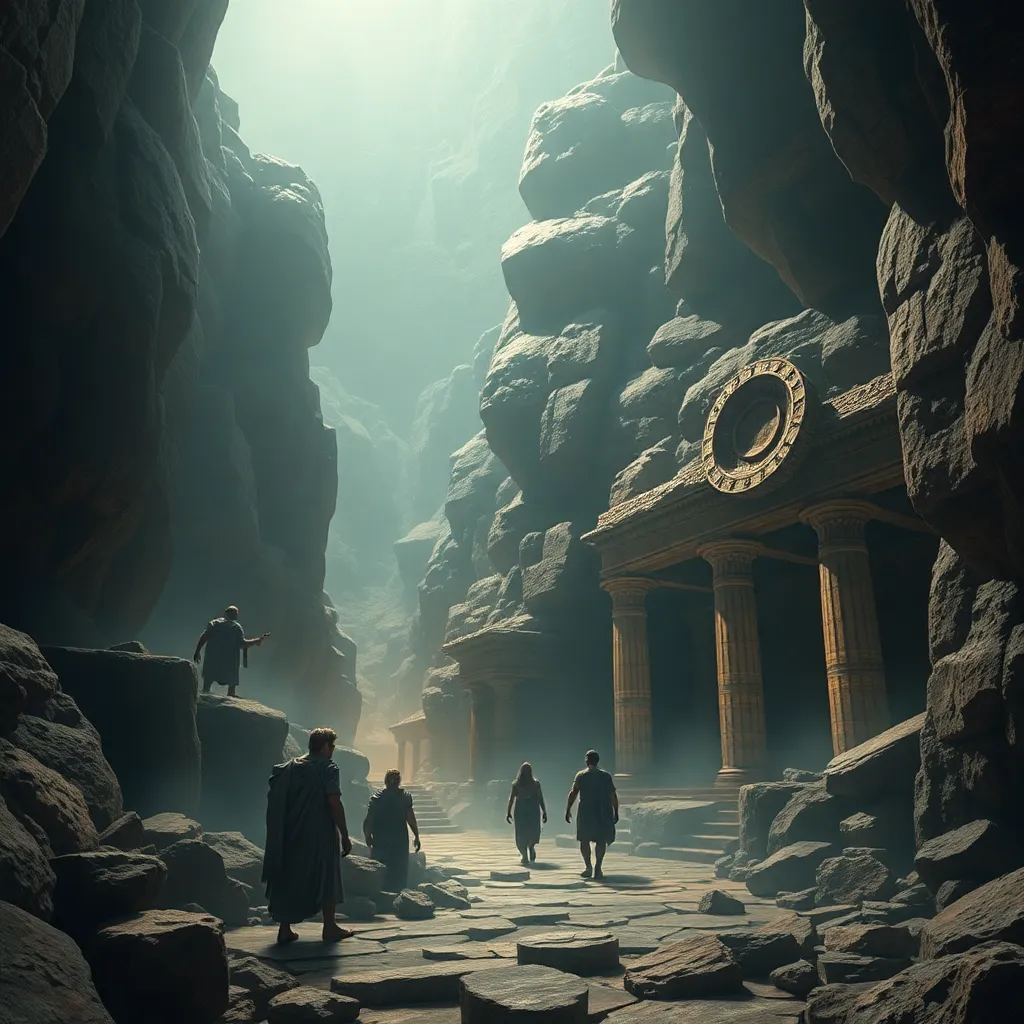The Role of the Underworld in The Odyssey: A Journey Beyond
I. Introduction
“The Odyssey,” attributed to the ancient Greek poet Homer, is one of the foundational texts of Western literature, recounting the epic journey of Odysseus as he returns home to Ithaca following the Trojan War. Its themes of adventure, perseverance, and the struggles of the human condition resonate deeply across cultures and time periods.
In the realm of Greek mythology, the Underworld is a significant concept, representing the place where souls go after death. It embodies the mysteries of the afterlife and the inevitable fate that awaits all mortals. The Underworld, with its complex structure and inhabitants, serves as a backdrop for exploring profound themes such as mortality, heroism, and the quest for knowledge.
This article will explore how the Underworld functions as a crucial narrative device in “The Odyssey,” reflecting the themes of mortality, heroism, and the quest for knowledge that are central to Odysseus’s journey.
II. The Underworld as a Symbol of Death and the Afterlife
In Greek mythology, the Underworld, often referred to as Hades, is depicted as a shadowy realm where the souls of the deceased reside. Governed by the god Hades, it is characterized by its various regions, such as the Fields of Asphodel, the Elysian Fields, and Tartarus.
The significance of death within the context of the hero’s journey cannot be understated. For Odysseus, confronting the Underworld symbolizes a rite of passage, a necessary encounter with mortality that shapes his identity and his understanding of life.
The Underworld represents the inevitability of mortality, serving as a constant reminder that all heroes, regardless of their greatness, must eventually face death. This theme of mortality is crucial in understanding the human experience, as it prompts both Odysseus and the audience to reflect on their own lives and legacies.
III. Odysseus’s Descent: A Rite of Passage
Odysseus’s journey to the Underworld is prompted by the need to seek guidance from the prophet Tiresias, who holds the knowledge necessary for his return home. This descent is not merely a physical journey but a spiritual one, marking a significant turning point in his quest.
As part of the ritual to gain access to the Underworld, Odysseus performs blood offerings, a practice steeped in ancient tradition. This act of sacrifice is vital, as it allows the dead to commune with the living and provides Odysseus the opportunity to gain insights that will aid him in his journey.
The transformative nature of Odysseus’s descent is evident as he confronts the realities of death, paving the way for personal growth and a deeper understanding of his purpose. This experience prepares him for the trials that lie ahead and solidifies his role as a hero.
IV. Encounters with the Dead: Lessons from the Past
During his time in the Underworld, Odysseus encounters several significant figures, each imparting valuable lessons:
- Tiresias: The blind prophet provides crucial guidance, warning Odysseus of the challenges he will face and the consequences of his actions.
- Agamemnon: The fallen leader shares insights about betrayal and the dangers of trust, emphasizing the complexities of relationships.
- Achilles: The greatest of the Greek warriors reflects on glory and the cost of heroism, revealing the bittersweet nature of fame.
These encounters offer Odysseus not only wisdom but also a deeper understanding of his own identity and the nature of heroism. The prophetic wisdom gained in the Underworld has profound implications for his journey, shaping his decisions and actions upon his return to the living world.
V. Thematic Exploration of Memory and Legacy
Memory plays a vital role in the Underworld, where the dead are often forgotten or remembered based on their actions during life. The significance of remembrance is highlighted as Odysseus reflects on the legacies of those he encounters.
The dead influence the living through their memories, and Odysseus’s interactions underscore the importance of legacy in shaping identity. As he confronts the ghosts of the past, he is prompted to reflect on his own life choices and the impact they will have on his future.
Ultimately, these reflections on memory and legacy serve to deepen Odysseus’s understanding of what it means to be a hero, emphasizing that true heroism is not just about personal glory but also about the lives one touches and the memories one leaves behind.
VI. The Underworld as a Contrast to the Living World
The stark differences between the Underworld and Ithaca are vividly portrayed throughout “The Odyssey.” While Ithaca represents life, hope, and belonging, the Underworld embodies despair, isolation, and the finality of death.
Within the narrative, despair and hope coexist as Odysseus navigates the duality of his experiences. The Underworld serves as a sobering reminder of mortality, but it also highlights the value of life and the yearning for home. This contrast shapes Odysseus’s understanding of what it means to belong and fuels his determination to return to his homeland.
VII. The Underworld’s Influence on the Hero’s Journey
Odysseus’s experiences in the Underworld propel his growth as a character. The insights he gains from his encounters shape his relationships and influence his decisions as he continues his journey.
The Underworld acts as a catalyst for Odysseus’s ultimate return to Ithaca, providing him with the wisdom and resolve necessary to confront the challenges that await him. His time in the Underworld underscores the importance of knowledge gained through experience, marking a significant evolution in his character.
VIII. Conclusion
In conclusion, the Underworld plays a pivotal role in “The Odyssey,” serving as a powerful symbol of death, memory, and the hero’s journey. Through his descent, Odysseus gains invaluable insights that shape his understanding of mortality, heroism, and the impact of legacy.
The enduring themes explored through the Underworld resonate with audiences, inviting reflection on the nature of life and the choices we make. Ultimately, Odysseus’s journey reminds us that the quest for knowledge and understanding is a fundamental aspect of the human experience, transcending time and culture.




